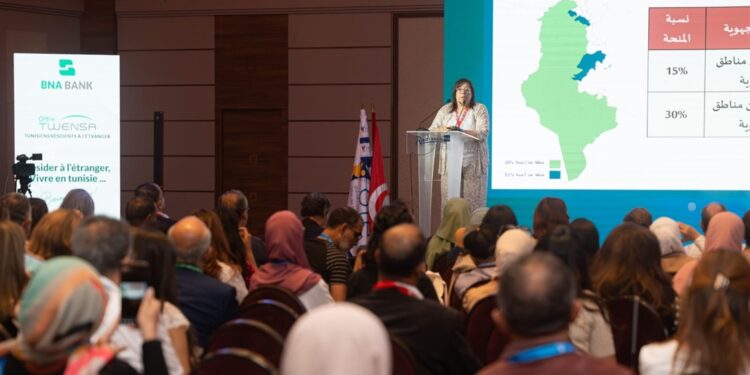The Tunisian diaspora is a colossal economic force for Tunisia. With transfers exceeding 8.5 billion dinars in 2024, and already 4.35 billion dinars in mid-2025, Tunisians residing abroad (TRE) are the first source of foreign currency of the country, even surpassing tourism!
However, despite this financial windfall and massive government aid, a question burns the lips: Why does such a small share of this money be towards productive investment, and in particular agriculture?
The majority of funds: current expenses, not the investment
In reality, a low proportion Funds sent by the TRE is directed to direct investment. The majority is used to support families and cover current expenses.
And in the strategic sector of agriculture, the observation is even more striking: Only 2% of private agricultural investments in Tunisia come from our diaspora! A proportion deemed “modest” by APIA (Agricultural investment promotion agency).
Massive aid … often overlooked?
This figure surprises all the more since Tunisia has set up a very generous incentive system for agricultural investors, especially those of the diaspora. RIM Heddaoui, general engineer at APIAdetailed these devices during the Regional conference of Grand Tunis governorates (“Modernize visions for a promising future”), organized on Monday, July 28, 2025. This Apia initiative was rightly aimed at bringing its services closer to TRE and encouraging them to invest in the agricultural sector.
Among the major incentives, we find:
- Up to 60% of direct subsidies: Yes, the state can cover a large part of the cost of your agricultural project!
- Attractive taxation: Tax exemption for 10 years for agricultural projects.
- Imports at no cost: Agricultural equipment (tractors, recent trucks, combine harvesters) exempt from import taxes.
- Employment support: Management of social contributions and wages in certain cases.
- Innovation assistance: Subsidies for modern technologies and sustainable agriculture (organic, climate adaptation).
- Personalized support: The Apia offers advice, assistance in the online file and services via a dedicated email ((Email Protected)).
Vs. Production: the choice of be
Surprisingly, when the Tre invest in agriculture, 80% of their projects are linked to services (import of machines, for example). Only 20% go to direct production (Cultures, breeding, fishing).
The big why: an unexploited potential
Faced with so many advantages, why do the Tre invest so little in productive agriculture? The mystery remains. Is this a lack of information on these devices? Fears related to bureaucracy, despite digitalization? A global lack of confidence in the business climate, pushing to favor thereal estate investmentoften tried less risky And more tangible than agricultural projects?
The paradox is there: billions sent, record incentives, but an agricultural productive investment of the diaspora which does not take off. A huge potential is waiting to be released for Tunisia.








